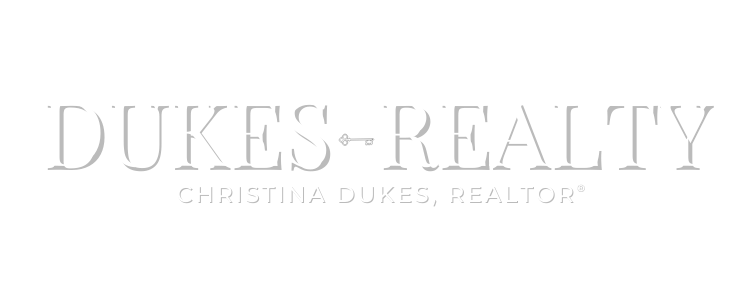Buying a Home

Steps to Buying a House
Buying a home is a big step and can be one of the most important financial decisions you can make.
Create a budget with a mortgage payment that is comfortable for you.
Click here for a Mortgage Calculator .
Mortgage pre-approval will determine how much money you can borrow for the purchase of your new home. We can refer you to a few lenders we trust will take good care of you.
The Process Involves:
- Calculating your income vs. debt ratio
- Running a credit review
What is the driving force for your move? (Job, Family, More Space, Schools, Lifestyle, etc.)
What type of activities do you and your family enjoy?
Take your time, look at many homes, take notes and ask questions.
Work with your REALTOR® to submit a signed proposal specifying the purchase price, terms and conditions to the seller
A home inspector will examine the home’s condition and alert you to any issues that may be present.
Decide which lender offers the loan product that works for you and apply for the official mortgage loan.
Homeowners insurance is required by your lender to protect your home from hazards like fire, storms and floods.
Closing day is when the seller receives the funds and you receive the deed and keys to your new home!
Local Communities
- Fulshear
- Fulbrook
- Fulbrook on Fulshear Creek
- Creek Bend at Cross Creek Ranch
- Creek Cove at Cross Creek Ranch
- Creek Falls at Cross Creek Ranch
- Creek Trace At Cross Creek Ranch
- Creekside At Cross Creek Ranch
- Fulshear Run
- Lakes Of Cross Creek Ranch
- Lakeside At Cross Creek Ranch
- Legacy At Cross Creek Ranch
- North Fulshear Est
- Polo Ranch
- Riverwood Forest At Weston Lakes
- Avalon At Pine Mill
- Avalon At Seven Meadows
- Avalon At Spring Green
- Cinco Ranch Cinco Forest
- Cinco Ranch Equestrian Village (Fort Bend)
- Cinco Ranch Equestrian Village (Harris)
- Cinco Ranch Fm 1093 Tract
- Cinco Ranch Fountain View
- Cinco Ranch Greenway Village (Fort Bend)
- Cinco Ranch Greenway Village (Harris)
- Cinco Ranch Greenway Village S
- Cinco Ranch Institutional Core
- Cinco Ranch Meadow Place (Fort Bend)
- Cinco Ranch Meadow Place (Harris)
- Cinco Ranch North Lake Village (Fort Bend)
- Cinco Ranch North Lake Village (Harris)
- Cinco Ranch Northwest
- Cinco Ranch South Lake Village
- Cinco Ranch Southpark
- Cinco Ranch Southwest
- Cinco Ranch Town Center
- Cinco Ranch West
- Cinco Ranch Willow Fork
- Estates At Grand Harbor
- Falcon Landing
- Falcon Point (Fort Bend)
- Falcon Point (Harris)
- Falls At Green Meadow
- Firethorne
- Firethorne West
- Grand Lakes
- Grand Lakes Phase Four
- Grand Lakes Phase Three
- Grand Lakes Phase Two
- Greens At Willow Fork
- Katy Creek Ranch
- Lake Pointe Estates (Katy)
- Lakes At Grand Harbor
- Seven Meadows
- Silver Ranch
- Tamarron
- The Reserve At Katy
Home Buyer FAQ's
Create a budget with a mortgage payment that is comfortable for you.
Click here for a Mortgage Calculator .
Your minimum down payment depends on the type of mortgage, the lender and your finances.
Click here for a Down Payment Calculator
The minimum down payment required for a house varies depending on the type of mortgage you’re planning to apply for:
0% down. Guaranteed by the U.S. Department of Veterans Affairs, VA loans usually do not require a down payment. VA loans are for current and veteran military service members and eligible surviving spouses. USDA loans, backed by the U.S. Department of Agriculture’s Rural Development program, also have no down payment requirement. USDA loans are for rural and suburban home buyers who meet the program’s income limits and other requirements.
As low as 3%. Some conventional mortgages, such as HomeReady and Home Possible, require as little as 3% down. Conventional loans are not backed by the government, but they follow the down payment guidelines set by the government-sponsored enterprises — or GSEs — Fannie Mae and Freddie Mac.
As low as 3.5%. FHA loans, which are backed by the Federal Housing Administration, require as little as 3.5% down if you have a credit score that’s at least 580. If you have a credit score that’s between 500 and 579, FHA loans require a 10% down payment.
As low as 10%. Jumbo loans are home loans that fall outside of the Federal Housing Finance Agency’s conforming loan limits. Because these outsized loans can’t be guaranteed by the GSEs, lenders tend to ask for higher down payments in order to offset some of the risk.
Average closing costs run between about 2% and 5% of the loan amount. This means, on a $350,000 home loan, you would pay from $7,000 to $17,500 in closing costs.
Paying down as much debt as possible before applying for a mortgage is ideal since it helps consumers improve their credit score, which mortgage lenders use to decide the interest rate a homebuyer will receive.
30-45 days to close on a home once you are under contract.





